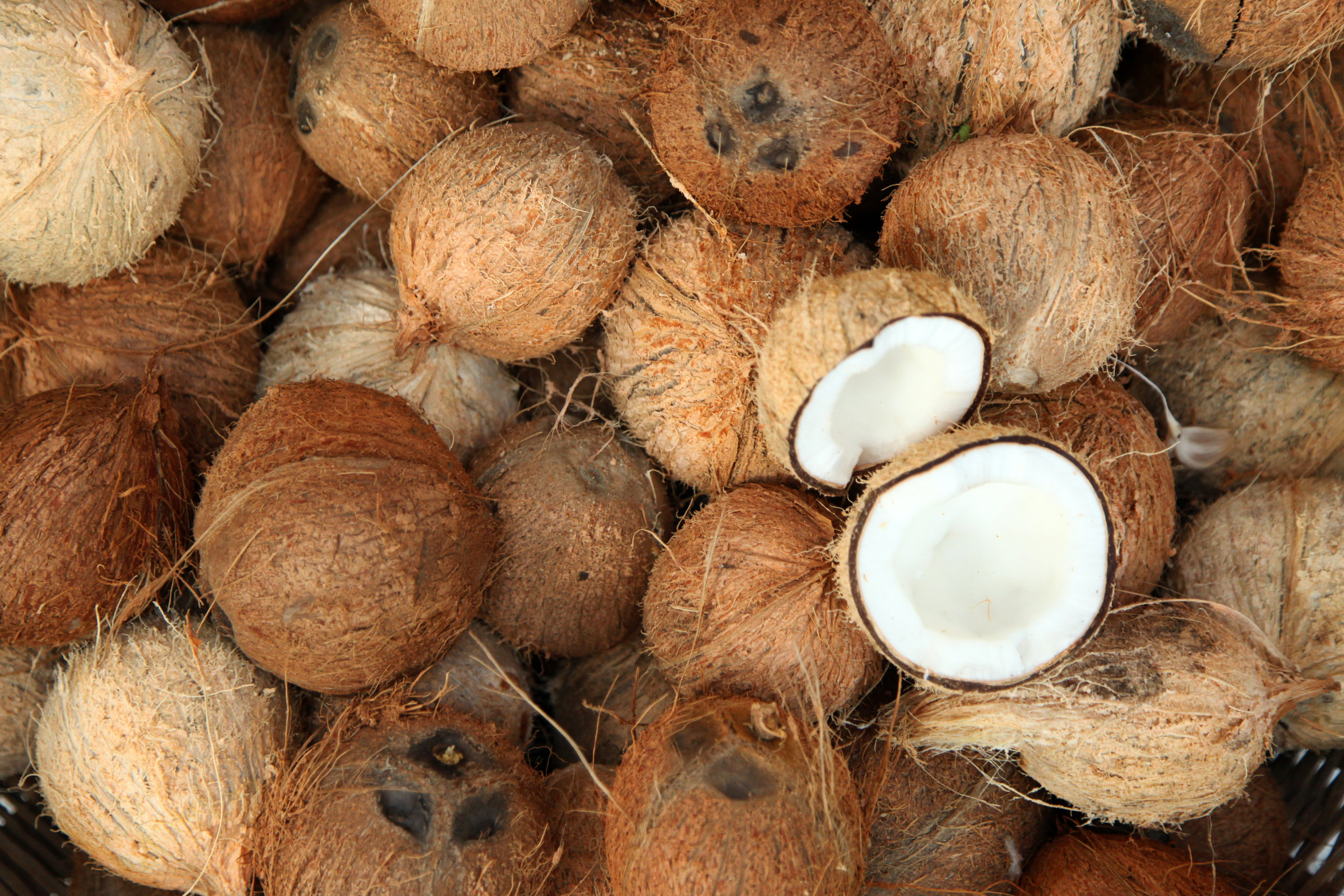COCONUT SHELLS AND BIO-MASS
Coconut shell is an agricultural waste and is available in plentiful in many tropical countries such as the Philippines. In many countries, coconut shell is subjected to open burning which contributes significantly to CO2 and methane emissions. Coconut shell is widely used for making coconut charcoal for fueling factory expeller machines and boilers. The charcoal produced using traditional methods (pit burning, barrel burning) is of variable quality and often contaminated with extraneous matter and soil. The smoke evolved from the pit method is not only a nuisance but also a health hazard.
The coconut shell has a high calorific value of 20.8MJ/kg and can be used to produce steam, energy-rich gases, bio-oil, biochar etc. It is to be noted that coconut shell and coconut husk are solid fuels and have the peculiarities and problems inherent in this kind of fuel. Coconut shell is more suitable for pyrolysis process as it contain lower ash content, high volatile matter content and available at a cheap cost. The higher fixed carbon content leads to the production to a high-quality solid residue which can be used as activated carbon in wastewater treatment. Coconut shell can be easily collected in places where coconut meat is traditionally used in food processing.


